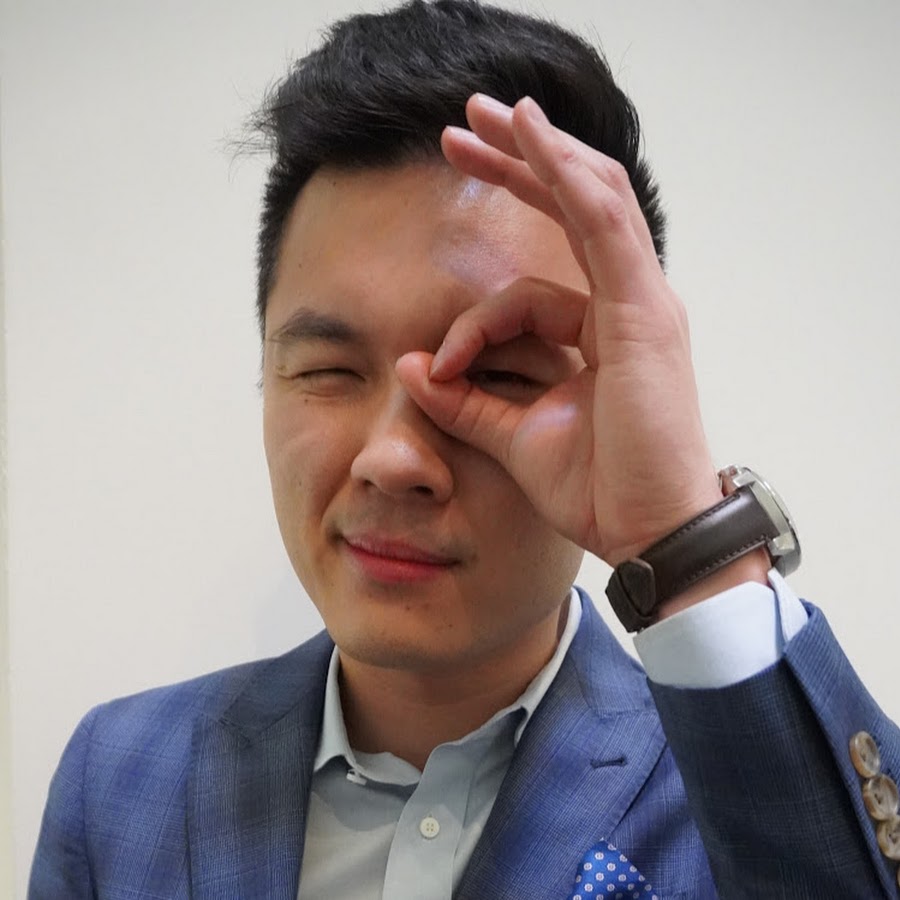How to Become Financially Independent with Cody Yeh
Curios how to become financially independent? Cody Yeh shares his story of making it happen, and a path you can follow as well!
Listen to us On
About the Episode
LifeBlood: We talked about how to become financially independent, why a secure career may not be the right path for you, how trading may be an option for generating additional revenue, and how to get started with Cody Yeh, entrepreneur, real estate investor and stock options coach.
Listen to learn why an MBA may not be the right path to your financial independence!
You can learn more about Cody at CodyYeh.com, Facebook, Instagram, YouTube and LinkedIn. Enter LIFEBLOOD at checkout for a 15% discount.
Thanks, as always for listening! If you got some value and enjoyed the show, please leave us a review wherever you listen and subscribe as well.
You can learn more about us at LifeBlood.Live, Twitter, LinkedIn, Instagram, YouTube and Facebook or you’d like to be a guest on the show, contact us at contact@LifeBlood.Live.

George Grombacher
Lifeblood Host

Cody Yeh
Guest
Episode Transcript
Come on leopard, this is George G. And the time is right. Welcome. Today’s guest is strong the powerful Cody. Yay, Cody. Are you ready to do this?
Cody Yeh 0:19
Yeah, I’m ready. Alright, thanks for having me
george grombacher 0:20
excited to have you on. Cody is a YouTuber, he’s a stock options coach, he is helping everyday people create wealth that helps them retire sooner. Cody tells everybody personal life’s more about your work, and why you do what you do.
Cody Yeh 0:35
Awesome. Yeah. So my name is Cody yay. Say yes, my brand, my slogan is say yes to fire. The idea is to help people say yes to financial independence retire early. And why that really comes about is because I came to Canada at the age of 18. With a student visa, I went into engineering school because I thought that would be the easiest way to get the very stable job. Right? And you don’t have to go to medical school and and all that. And it turns out, yes, it was the easiest way. But you know, it’s not the fastest way to wealth, really, you could be kind of making a great decent money, but you kind of know where their wealth. So that’s where I started looking to how can I actually, instead of working for 30 years, how can I work more efficiently invest those money that I saved not just in a bank and achieve where I want to be. So eventually I can spend more time with family, friends, or maybe neither in Canada or I can be anywhere in the world. So that’s why I look into real estate investing. And you know, the we kind of have the long term bullish fishing in Canada and state as well, because of millennials getting into my age. I’m 31. I am right in the middle of millennial. So we’re very bullish on that in the long term. And on top of real estate investing, stock off, investing has been giving me the cash flow, to allow me to quit my six figure job. So those are the two things I really helped me, you know, expedite my financial journey. And now I have a lot more time to help more people that want to achieve that.
george grombacher 2:19
Right. Nice. I appreciate that. So you’re clearly a an intelligent person if you’re able to just decide between medical school or engineering school, and let me go ahead and pursue that. But then recognizing that, hey, this is awesome, but it’s not going to really bring me well. And if it does, it’s going to take a long time. So how did you then did you go through sort of the same process to settle on real estate and stock options? Tell me about that process?
Cody Yeh 2:46
Yeah, so you know what I after I graduate, or even before I graduated, I was working on internship, I was doing a stupid amount of overtime at that time, because I thought that’s the fastest way to save the most amount of money. But in Canada, when you get to a certain income bracket half more than half of your your gross income goes to the government. So I’m I’m working so hard. Meanwhile, half of the money, Scott. So I know I have to do something of the money. And I realized real estate’s one of the things that you know, if you buy your first house appreciate don’t have to pay capital gain, right and stock options while we’re you could potentially put those money in your corporation. And if you really don’t need those money, you can let a snowball in your corporation only pull the money you need at a very low tax rate. And from there, you can pass on both real estate, your stock option portfolio into your next ship next generation very efficiently. very tax efficient. So I’m thinking a lot ahead. But for me is, you know, selfish at that time, just like I could not keep working 400 to 800 hours of overtime every year I cannot keep up eventually have a family. I know something will break my health when my relationship or everything. Right. So
george grombacher 4:04
nice. So I’m sure that you looked at lots of different options, right? He said, Okay, what what is available to me? What was it about about stock option investing that was attractive to you?
Unknown Speaker 4:17
Yeah, so, I was actually I start investing stocks in 2011. I started boring bank stocks, you know, like, like, typical, you know, like investment bank or just like Bank of America nostoc advice, right, all those boring stocks and I realized, Hey, maybe I could achieve better. And I was introduced to my Day Trading Coach at that time from 2015 to 2018. And I wouldn’t believe her until I seen it and she she has no YouTube channel. She has no marketing. She has magic a lot, a lot of money like multiple eight figures. At her age. She was two years younger than me. So I didn’t believe it until I seen it until I see the results. And I tried it for two years. It was tough at first for sure. And once I kind of, you know, end your of 66%. I know hate this is kind of great. But that was my second job. And I realized that I was an engineer, I was a discipline person, I train really hard, I spent five to six hours every day, you know, like, two to three hours preparing trays, one to two hours trading to three hours afterwards, writing reports hand drew all the charts. I mean, not everyone can do this. So this is not sustainable to me. Right. So that’s when I realized, hey, stock option is another way that I can only spend 30 minutes per day or less, and achieve one to 4% per month. And to me, I’m like, that’s a lot better than then mutual fund, and also have full control. And also I’m not sitting in front of my computer and drive myself nuts. So there’s a very higher, much higher chance of success rate. And that’s proven for hundreds of my alumni taught that they have gone through average people, there’s musician, there’s high school teacher, and they were all able to replicate my success. And that’s how I know. Okay, this is where average people can make one 4% per month and replace the venture replace their income, whether they want to replace your your spouse, or they want to buy your next rental property where they just want to move to an island. And as long as there’s internet, they can do this. And the stress is very low, the returns very high. Right?
george grombacher 6:31
Nice. Well, that makes a lot of sense. You’re doing all this massive amount of work. You’re you’re you’re you’re working super hard, and you were doing that before with overtime, then you find the day trading like, Okay, this is awesome, but it’s not sustainable. It’s just it’s too much. And you find the stock options. 30 minutes a day, roughly speaking, you’re able to generate one to 4% a month. Now, when you heard that initially is like, ah, that’s that’s that’s too small, or what was sort of your initial thought on that?
Unknown Speaker 7:02
Yeah, initially, you’re like, because like, there’s still people who come to me as Cody, I want to make 100% per year. Yeah, maybe in 2022. A lot of people, new people especially got a little bit overconfident, because when they start after COVID, everything goes up. So when the market goes up, everyone seems like a genius. But no, not a lot of people go through the dip before COVID, the dip in 2018, that dip in 2015 2010 2008, and all that. So he has to go through multiple of those to really humble you and making sure that you have a track record proven a test proven strategy. Right. So a lot of people get overconfidence, that cotija should be easy. Last year, I got this somehow, even my mutual fund get this somehow. My Well, when you start investing, right, and all they are most of them told me after COVID, right after COVID. And that’s very convenient. Right? So that that’s the key thing that why people have such high expectations because they haven’t gone through it, they haven’t got humble. Alright, so you know, one to 4%. If you think about that, it’s 12 to 48% per year without compounding. So once you compound that, if we use the rule of 72, even if it’s 12% 72 divided by 12%, get a double your money in six years. Now, if you double your money in six years, you will get to where you want to be really quick. So Eva had the lower ad. Right? If you have the discipline, if you follow the rules. Everything is upside, right. But we have to be very careful not get greedy offside and start chasing things. And that’s where you can get into big trouble. Right?
george grombacher 8:43
Yeah, I think that that’s really well said right there. And it strikes me that that when you read about how whatever the statistic is 85 to 90% of the people who are day trading kind of that group of folks who have gotten access to it through apps like Robin Hood, which I’m all for it. I’m super excited for people who who want to do that. But the reality is that you get humbled, you have to pay your tuition by by losing a bunch of money. And then you hopefully if you do come back you recognize, okay, I need to have good expectations. I need to have a system that I can follow and I need to be disciplined.
Unknown Speaker 9:18
Mm hmm. Yeah, there’s, I mean, Robin was so genius that they make it so easy make it seems like a video game. But doesn’t mean someone who can put in a trade doesn’t mean they can trade. A lot of work are done in the back end. And when you don’t have a system, you’re testing the system, guess what you can have real keys luck. You make money, make money, make money by if you don’t know how to manage your risk and portfolio, size it the moment you lost it, you can wipe out all the gain and more and people don’t realize that right? When you compound it up, you lose 50% 50% of your new amount. Right? So that’s something that’s, you know what I’m engineer that’s very cool. Because I always look at numbers, am I actually going upward down? Right? That can’t lie, right? Ever go up, up, up and down. I’m like, Okay, this is not working, right. So, when I was day trading, we only use maximum 10% of the amount of money we have for each tray. Ideas, if you really lose all of it, or you know, we have stop loss and all that. If you lose 10%, you’ll need to make 11% back. But if you lose 50%, you need to make 100%. And that’s just pure math. Right? So the smaller amount of stop loss you could control, the more control you have the more machine more rational, more objective, you can stay, right anyway, why don’t do day trading more, but that still applies to overall investing, right?
george grombacher 10:47
So moving from doing the many, many hours a day to be able to now do the new strategy with the stock options in considerably less time. Tell me a little bit about how that works.
Unknown Speaker 11:02
Yeah, so. So day trading is really what betting direction, we’re trying to follow a trend have a tight stop loss, it is very stressful, because everything go up and down because fear and greed in the short term. Now, for the stock options strategy that I teach now, you know, I’ve been stabilizing for years is that we first identify blue chip stocks, that we like, the blue chip stocks that preferably pay a dividend well has a track record of growing for the last five years, and they have to be positive net income, as in the bottom line has to be positive. And we look at the chart and make sure they have a healthy growth, but not like up and down because of you know, all these news, right? No matter what the news is, no matter what COVID and might have a small dip, but they just keep going higher. So that’s kind of the the stocks we look for, to start with. So even if we’re wrong in the long term we are right. Now from there, then we use the option strategy, we’re on the selling side of things. So we sell the options strategy, like the put option strategy, with a call option strategy. Now the easiest way for some real estate investor up on your audience is that we kind of get pay, to agree to buy off market deals, that’s below market value, we get pay, like an insurance company, to agree to buy that. And if it really comes to point, a, the market value is below the price we’re agreed to be by the expiration day, whatever that is a month a year out, we have with them, we are obligated to buy them at a discount price. Right? And you’re like Cody, so what do you do after you buy at a discount price? Well, first of all, if you’re happy to buy 100 bucks, now you can buy a 90 bucks, and you get paid. So now your true cost might be 85 bucks. So you should be really happy in the long term. But in the short term like Cody, what should I do that? Well, you might get paid dividend, or you can even rent to own it out, right. So you can kind of rent it out and get paid even more while you wait for the stock to go up. What does that mean by that is you become the insurance company, again, you rent it out and agree to sell at a higher price, and you get paid. And while you’re waiting, just keep doing that keep selling agree to sell at a higher price, you get paid like an insurance company, you keep all the premium, just like an insurance company, right. And if the stock doesn’t go up stays the same. Well guess what all the premium get paid keep lowering your true costs. But if it jump up, guess what you have to you know, sell it at a higher price. So you make the appreciation, you keep all the premium from selling the put option. Before you own the stock. You keep all premium after you own the stocks and agree to sell a higher price. You overall true cost is very low and never sell up here. You’ve taken all that appreciation and premium and that’s kind of how you win in a very, very risk averse way. Right? Got it. That makes sense.
george grombacher 14:06
It does. It does that I’m tracking. So what is the what is the required expenditure of resources? If I say yeah, hey Cody, this sounds awesome. How do I get started? What do I need from a time perspective? Attention money?
Unknown Speaker 14:23
Yeah, so in terms of time, you know, there are people want to spend hundreds of hours if not 1000s of hours on YouTube and read 20 Plus books. I’m totally all in for that. You know, I had to do that by nm make a lot of mistakes. You know, I wish I had just hired a coach as track record proven has a lot of student a lot of testimonials for it. From there. I saved the time and saved the money to be honest, right? I’ve seen it so many times. So now that looking backwards, I know what’s the fastest way to get there. Right and now in terms of capital, it’s you know, As long as you have enough money to buy 100 shares of a stock, for example, of Bank of America, it’s around $45 that say, as long as 4500 us dt, which is 45 times 100, then you can start selling a put option, right, and you can get paid maybe one or 4% per month, and you can go from there. And as your account gets bigger, then you can pick on Apple, which is, you know, about 180 bucks. Again, all these are nostoc advice, but just kind of like stocks I play with, right, as you account get bigger, maybe one day, you can get to Google, get to Amazon, and you can use more intermediate strategy to even participate in the well we call spreads. But that’s more later on. But really, you should get a good understanding and make money. Make your first 5k 10k By doing this boring stuff from just selling puts and cover call. Right. Got it.
george grombacher 15:56
So how long? How long does it take somebody to sign up for your course and actually make it through to the point where I am? Hopefully generating that one to 4% a month?
Unknown Speaker 16:09
Yeah, so if you’re figuring all your own, that’s unpredictable because it depends everyone’s personality. Everyone’s discipline, everyone’s intelligence per se. Right. Now, if you know speaking from my cohort, my alumni and I’ve seen on the on the quick sigh I’ve seen someone who went through the course the next day set of your account good to go. Never ask a question. Make the money back in three days. Meanwhile, there are other people like more like musician, artistic type, they’re like Tony had zero idea about math are going to be the slowest one. And they were paper trading for a good two, three months. They were taking their time to like figuring everything out. Make your mistake with fake money. Raw right? And your some artistic people. They’re like Cody, I start 300k fake money. I turn into 380,000. So can you tell me how do I get that money out? I’m like, this is a joke, right? This is supposed to be a joke. Right? He’s, uh, yeah, I have figured out I’m sorry. I couldn’t tell you. But good for you. You should start real money now. Is that Yeah, yeah. So it’s really the people fixate on? How long does it take me to learn it? Now I went to school for four years, I pay $120,000. There’s still people paying 50 to $100,000 every year for MBA, and I have so many students backing me up and say, Cody, I don’t get why people pay so many, so much money for MBA. I totally know if you know where you go into you pay for it. But if you’re just going and trying to make more money, there are more efficient ways that you can pay a lot less, he can use his skills for your whole life, you can pass it on to your kids even pass on to your grandkids, the strategy doesn’t change, the stocks might change. But this is a very risk averse way for you to get encumbered early on. I have students who taught their kids at 16 and give them a 50k to 100k money I say, Here you go from now on, you are responsible for this, and you will make your own pocket change. If you lose it, it’s on you. You owe me that money. But if you make money we split in half. So imagine what kind of education will give your kids if you do that, and their account like your money making machine. So I think that just very beneficial. Right to start. The earlier you start you know, the more account Powell the more earlier mistake you can get into so you don’t get you know, you humble yourself and you stick to the rule scrape the earlier you can realize that the for the earlier you can make your first 5k 10k make all the money back then as the infinite return that you have from there. Right.
george grombacher 18:54
Love it. Cody, appreciate you coming on. Where can people learn more about you? And how can they engage? How can they get started?
Unknown Speaker 19:03
Yeah, so George, I do have a free YouTube channel, I should be updating more. It’s been one and a half years, but there’s some basic 18 videos that can get people started. I also have a Facebook group more than 4000 people where I go Facebook Live every Sunday at 7pm Eastern Time and let people vote about the topics. Upload a lot of blogs, a lot of value added videos, right and we you can help me put it in the description as well. It’s free to join right and you can engage me in there learn about all these stocks option. No matter your beginner, intermediate or seasonal people, you can always take something away from it.
george grombacher 19:44
Well, if you enjoyed this as much as I did, she’ll go to your appreciation and share today’s show with a friend who also appreciates good ideas. Check out his Facebook group and his YouTube channel and I will list everything all the ways to get in touch with cody in the notes of the show. Thanks Cody.
Unknown Speaker 20:00
yeah thanks for having me
george grombacher 20:01
and until next time keep fighting the good fight is we’re all in this together
Transcribed by https://otter.ai
More Episodes
Beyond the Bank Balance: Cultivating a Soulful Relationship with Money
You don’t need to be a Wall Street shark or a personal finance guru to develop a healthy relationship with money. In fact, most of us start with little more than a jumble of beliefs and habits passed down from our families. But if you’ve ever found yourself stressed...
How Using AI Can Help You Gain Clarity Into Your Financial Future
In today's fast-paced, data-driven world, achieving financial clarity can feel like an overwhelming task. With numerous financial decisions to make—from budgeting and investing to retirement planning and debt management—it's easy to feel lost in the complexity of it...
How AI Can Help Improve Your Personal Finances
1. Smarter Budgeting and Expense Tracking AI-powered tools like Mint, You Need a Budget (YNAB), and PocketGuard can automatically categorize your expenses, track your spending in real time, and even alert you when you’re about to exceed your budget. These tools...
Trust and Confidentiality When Using AI as Your Financial Coach: Safeguarding Your Sensitive Data
In the digital age, artificial intelligence (AI) has revolutionized many aspects of our lives, including personal finance. AI-powered financial tools have become a go-to resource for budgeting, investing, debt management, and even retirement planning. But as more...
How AI Can Be Your Personal Financial Coach: Unlocking the Future of Financial Success
In today’s fast-paced world, managing your finances can feel overwhelming. With so many options for saving, investing, and budgeting, it can be hard to know where to start or how to stay on track. Fortunately, advances in technology—specifically Artificial...
How Technology and AI Are Benefiting Investors and Consumers in Securing Their Personal Financial Futures
In recent years, the rise of technology and Artificial Intelligence (AI) has profoundly transformed the financial landscape. These advancements have empowered investors and consumers to make more informed, efficient, and personalized decisions about their financial...
10 Things New Parents Should Be Thinking About Regarding Their Personal Finances
Becoming a parent is one of the most joyful and transformative experiences in life. However, it also brings new financial responsibilities and challenges. If you’re a new parent or expecting, it’s crucial to plan ahead to ensure your family’s financial security. Here...
10 Things Newlyweds Should Be Thinking About Regarding Their Personal Finances
Marriage marks a new chapter filled with excitement and partnership. While love may be the foundation, financial harmony is key to building a stable and happy life together. To set yourselves up for success, here are 10 essential financial topics that every newlywed...
Financial Tips for New Parents: Building Stability and Security for Your Growing Family
Becoming a parent is one of life’s most rewarding experiences, but it also brings significant financial challenges. From diapers to daycare, the costs add up quickly. Whether you’re a first-time parent or adding to your family, managing finances wisely is crucial for...
Join the show.
Interested in being on the show? Tell me a little bit more about you and what you’d like to talk about!














